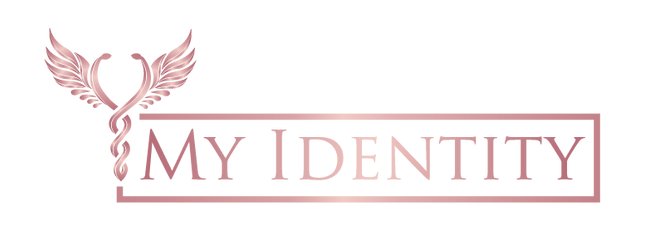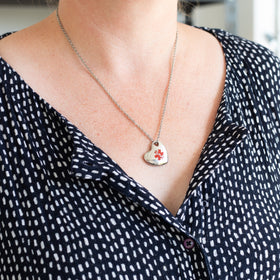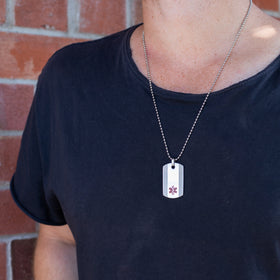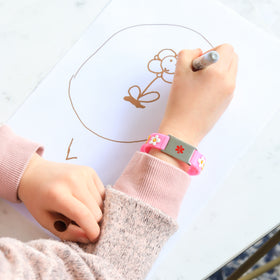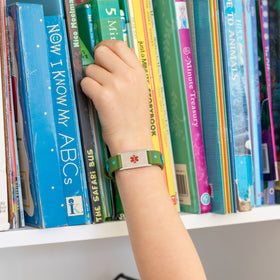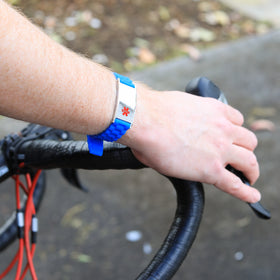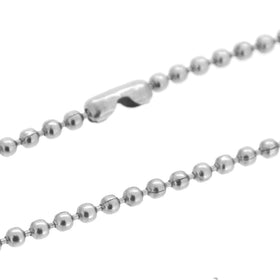Not all abbreviations are right for your medical ID. Here’s why:
- For example, Tx can mean treatment or transplant, and MS might refer to Multiple Sclerosis or Metabolic Syndrome.
- Take TKR (Total Knee Replacement). While it’s common in medical records, it’s not something all first responders will recognise straight away, so it might be better to spell it out.
When deciding what to engrave, think about how common your condition is. If you have a rare condition, it’s especially important to spell it out and include any key treatment details. And don’t forget to check with your doctor or nurse if you’re not sure what would be best!
Remember, less is often more. Just because there’s an abbreviation for everything doesn’t mean you need to use them all. A mix of abbreviations and full words will make your ID easier to understand while still saving space.
What Should You Put on Your Medical ID?
Once you've chosen the abbreviations for your condition, it’s time to make sure your medical ID has all the essential info. At the very least, your ID should include:
- Your name
- Your NHI number (NZ) or IHI number (Australia)
- Your condition/s, allergies or anything else a first responder should know.
- An ICE (In Case of Emergency) phone number.
Maximise your engraving space on your My Identity medical ID so first responders can easily get the important details they need in an emergency.
- Atrial Fibrillation: A-Fib
- Allergy/Allergic To: ALGY
- Aortic Valve Replacement: AVR
- Blood Pressure: BP
- Cancer: CA
- Chronic Kidney Disease: CKD
- Chronic Obstructive Pulmonary Disease: COPD
- Congestive Heart Failure: CHF
- Coronary Artery Disease: CAD
- Coronary Heart Disease: CHD
- Cystic Fibrosis: CF
- Deep Vein Thrombosis: DVT
- Defibrillation: DEFIB
- Diabetic Ketoacidosis: DKA
- Do Not Resuscitate: DNR
- Epinephrine: EPI
- Erythromycin Ethylsuccinate: EES
- History: HX
- Hypertension: HTN
- In Case of Emergency: ICE
- Intravenous: IV
- Medication(s): MED/MEDS/RX/RXS
- Mitral Valve Prolapsed: MVP
- Penicillin: PCN
- Tracheotomy: TRACH
- Transplant or Treatment: TX (requires context)
- Von Willebrand’s Disease: VWD
